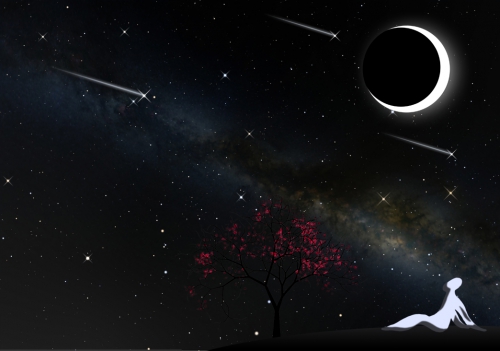
Summer Stargazing Nights - CLOSED
- Where:
- Frosty Drew Observatory and Science Center
- When:
- Fri, Jun 16, 2023 - CLOSED
- Cost:
- This event has been cancelled
Welcome to the Frosty Drew Summer Stargazing Nights! Every Friday night (weather permitting) we open our Observatory, Science Center Sky Theatre, and telescopes to the skies and offer free stargazing and astronomy to anybody interested in observing with us.
Tonight's forecasts are calling for increasing clouds this afternoon, with overcast conditions setting in before 7:00 pm. Eventually t-storms will bring heavy rain to the region, which has a good chance of happening during our stargazing hours. Sadly, being that the New Moon is occurring on Sunday, we would have had an amazing night tonight, with perhaps our first view of the Milky Way during a public event. With the rather dismal forecast slated for tonight, we will keep the Observatory and Science Center closed, and attempt another opening on Friday, June 23, 2023. Let’s hope to see each other then!
Be sure to subscribe to the Frost Drew Observatory mailing list, follow us on Twitter (@FrostyDrewOBSY) or on Facebook to receive status updates about our Summer Stargazing Nights program and more.
Preparing for Your Visit:
Check out our page on Visiting Frosty Drew Observatory to learn more about what to expect at the Observatory and better help you prepare for your visit.
How to Prepare for Springtime Conditions: The Frosty Drew Observatory is located inside Ninigret Park and borders the Ninigret National Wildlife Refuge. Insects and arachnids are a concern when visiting the Frosty Drew campus. We have observed mosquitoes, green head flies, deer flies, ticks, biting ants, and more. Please read the Mosquitoes and Insects section on our Visiting the Observatory page to familiarize yourself with adequate preparation measures.
Please note that we do not allow any white lights on our campus from dusk - dawn. This is to ensure an equally awesome view of the night sky for all and to allow for the use of light sensitive astronomical equipment. Learn more about why we have this requirement in The Red Light District.
